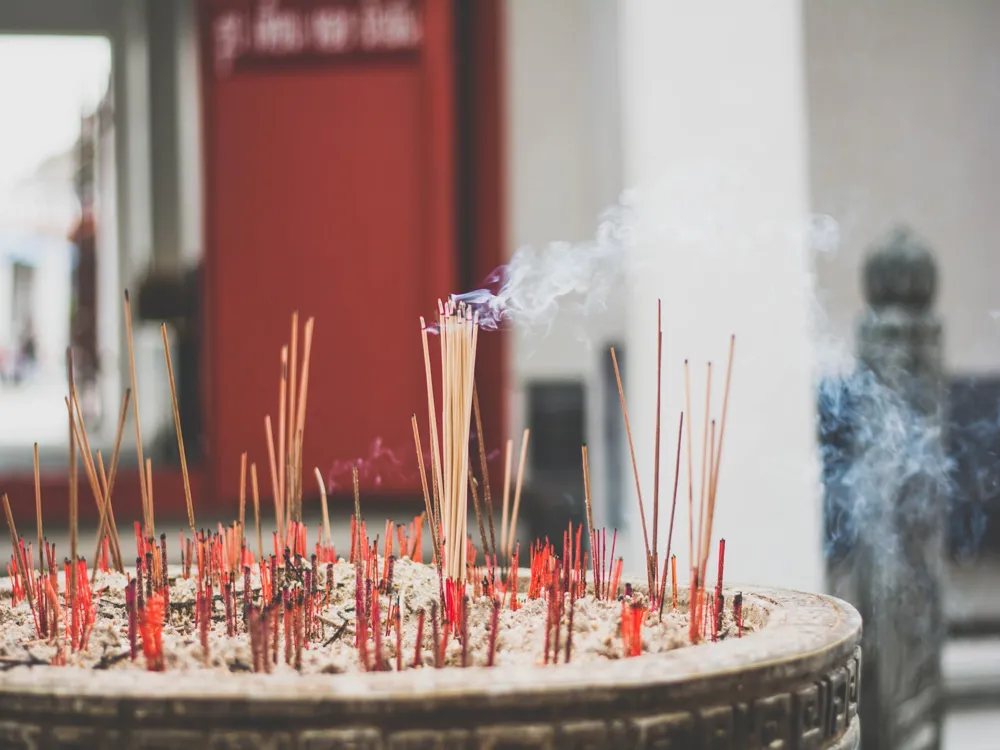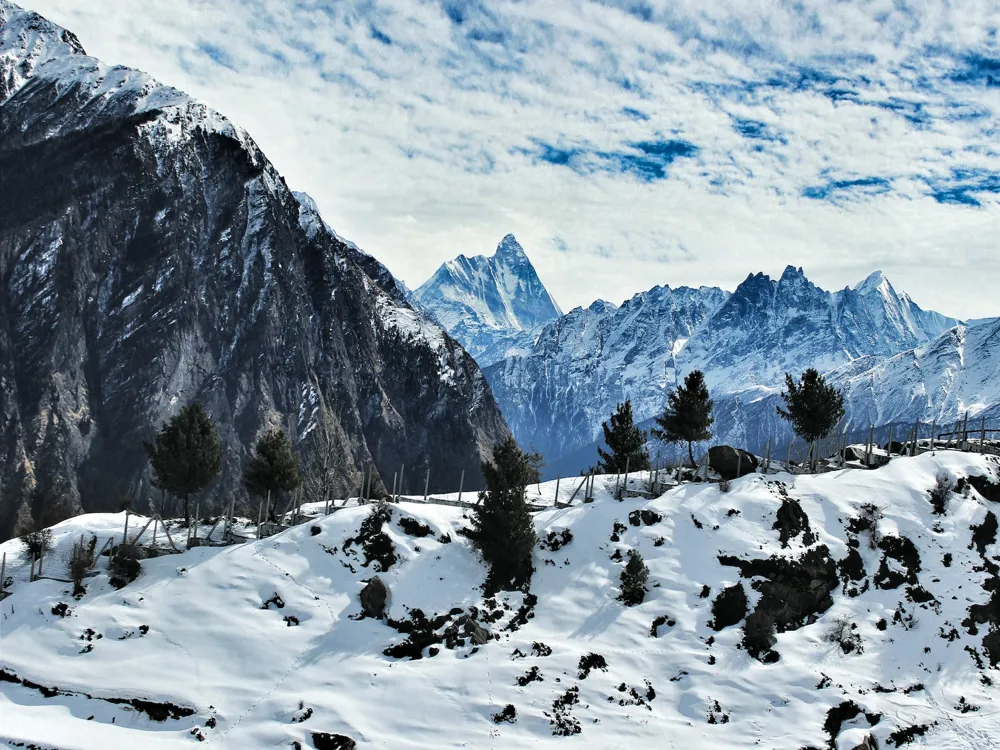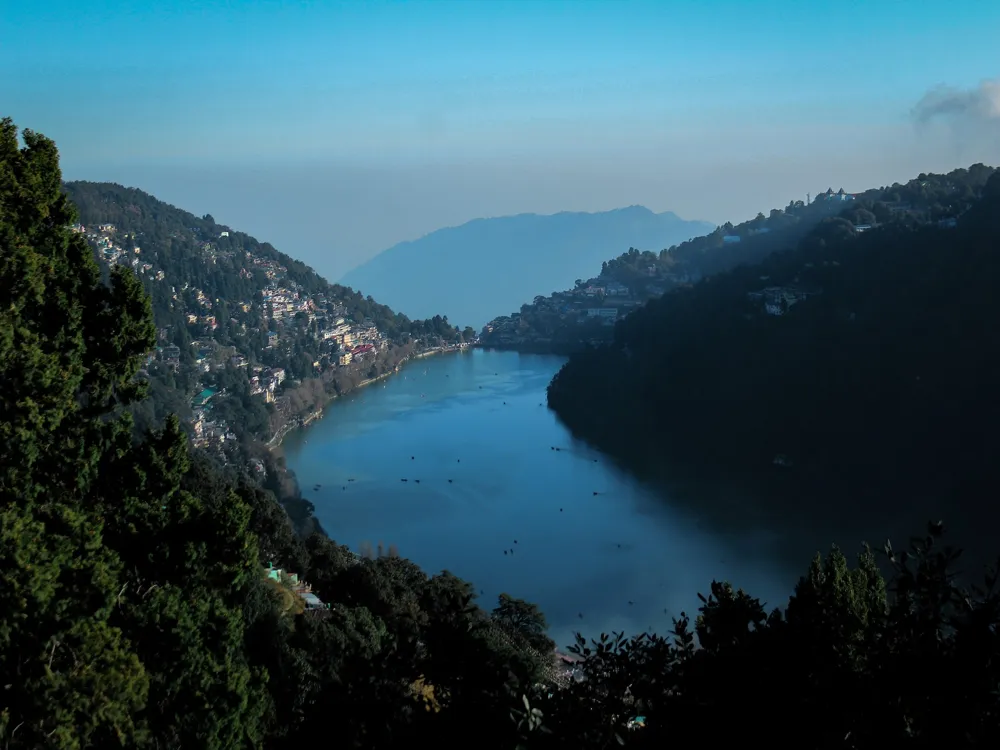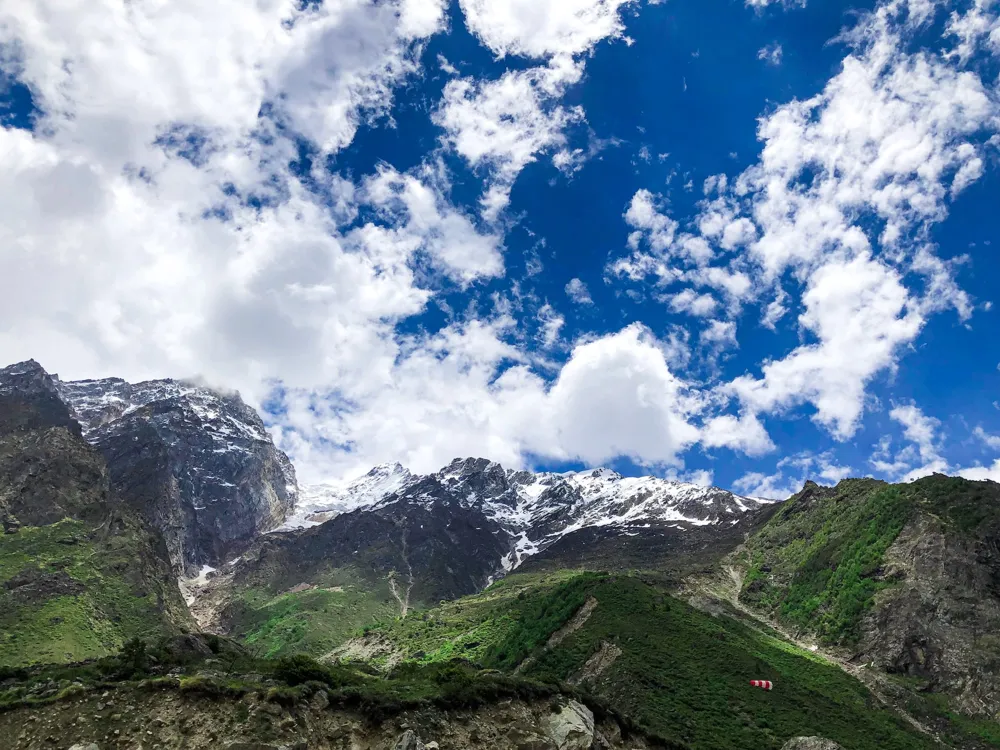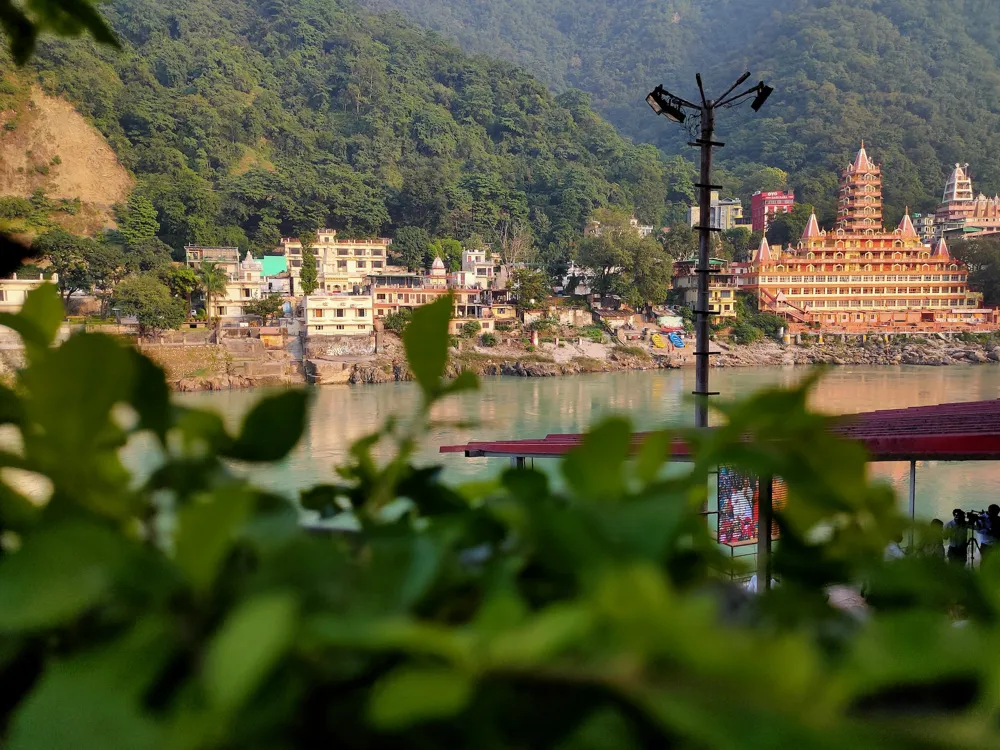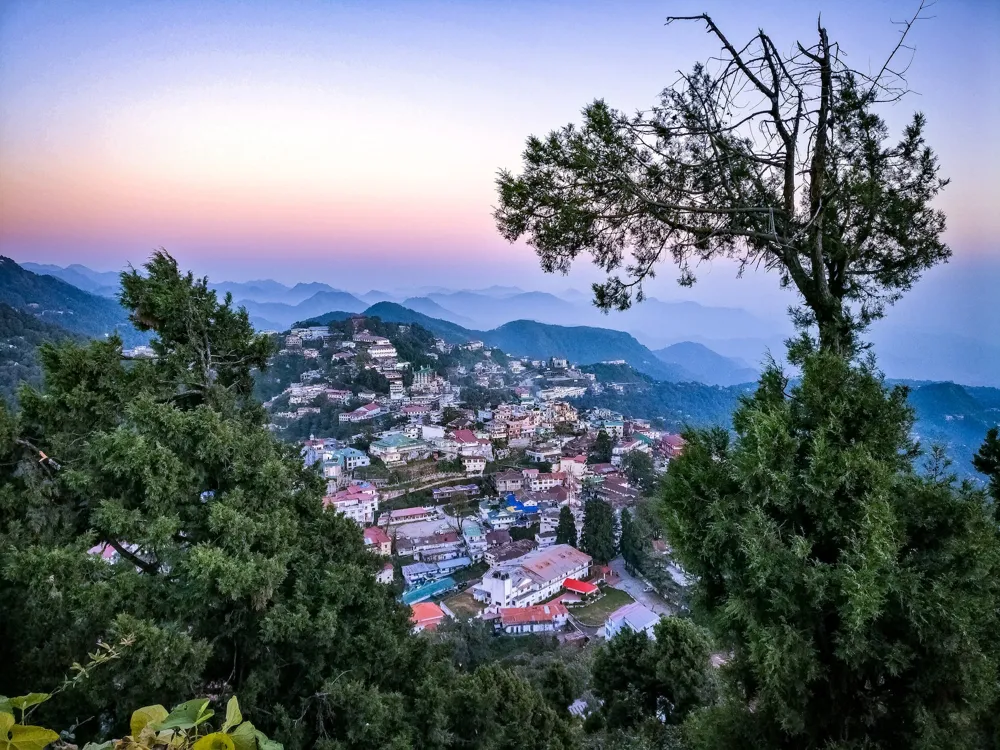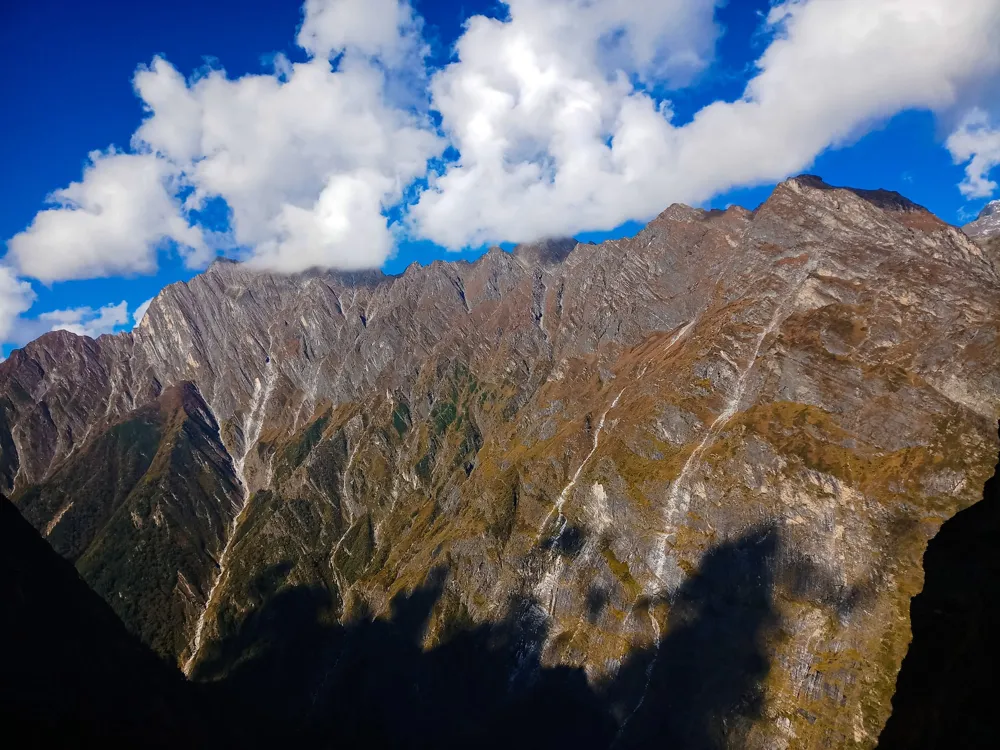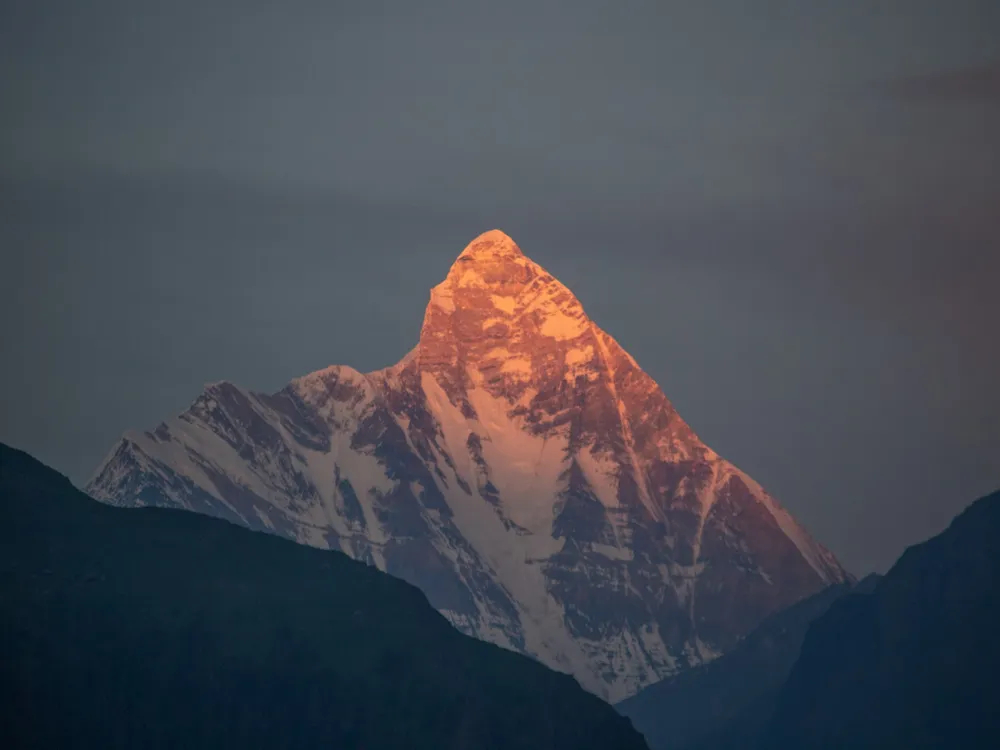The Gari Bhavani Temple, a revered shrine nestled in the serene landscapes of Joshimath, Uttarakhand, stands as a testament to the rich cultural and religious tapestry of India. This temple, dedicated to the Goddess Bhavani, a form of Parvati, has been a beacon of spirituality and faith for centuries. The temple's origins can be traced back to ancient times, making it an important pilgrimage site for devotees. Surrounded by the majestic Himalayas, the Gari Bhavani Temple not only offers spiritual solace but also mesmerizes visitors with its breathtaking natural beauty. The temple's significance is deeply rooted in Hindu mythology and local legends. It is believed that the Goddess Bhavani, the consort of Lord Shiva, embodies power and grace, and devotees visit this temple seeking blessings for strength and prosperity. The Gari Bhavani Temple is not just a spiritual haven but also a hub for cultural and traditional practices, where various festivals and rituals are celebrated with great fervor. This temple serves as a vibrant center of communal harmony, where people from all walks of life come together in devotion. Beyond its religious importance, the Gari Bhavani Temple plays a crucial role in preserving the local culture and traditions. The temple is a living example of the ancient architectural styles, showcasing intricate carvings and designs that reflect the skill and artistry of the craftsmen of yore. The temple premises also serve as a venue for many cultural events, including music and dance performances, that keep the traditional art forms of Uttarakhand alive and thriving. The architecture of the Gari Bhavani Temple is a splendid example of the ancient Himalayan style, characterized by its unique and intricate design elements. The temple's structure is a harmonious blend of wood and stone, typical of the architectural heritage of Uttarakhand. The main shrine, housing the deity of Goddess Bhavani, is adorned with elaborate carvings depicting various deities and mythological scenes, each telling a story from the sacred texts. One of the most striking features of the Gari Bhavani Temple is its multi-tiered roof, a distinctive element of Himalayan temple architecture. This roof, made of locally sourced wood, is designed to withstand the harsh mountainous climate while adding an aesthetic charm to the temple's silhouette. The temple also boasts of beautifully carved wooden doors and windows, which not only enhance its beauty but also symbolize the traditional craftsmanship of the region. The temple complex is also home to several smaller shrines and pavilions, each with its own architectural significance. The use of natural materials, along with the intricate carvings and thoughtful design, creates a sense of harmony between the temple and its surrounding natural environment. The Gari Bhavani Temple stands as a magnificent example of the rich architectural heritage of Uttarakhand, reflecting the ingenuity and spirituality of its creators. The ideal time to visit the Gari Bhavani Temple is from April to June and from September to November. During these months, the weather is pleasant, making it easier for pilgrims and tourists to explore the temple and its surroundings. Visitors are advised to dress modestly, respecting the temple's religious sanctity. Traditional Indian attire is recommended. It is also important to maintain a quiet and respectful demeanor within the temple premises. Engaging with local customs and traditions can enrich your visit. Participating in temple rituals and attending the Aarti (prayer ceremony) can provide a deeper understanding of the local culture and religious practices. Photography may be restricted in certain areas of the temple. It's advisable to check with the temple authorities and respect the rules regarding photography to ensure a respectful and non-intrusive experience. The Gari Bhavani Temple in Joshimath is accessible by various modes of transportation. The nearest airport is Jolly Grant Airport in Dehradun, approximately 270 kilometers away. From the airport, visitors can hire taxis or take buses to reach Joshimath. The nearest railway station is in Haridwar, from where buses and taxis are readily available. For those preferring to drive, Joshimath is well-connected by road to major cities like Dehradun, Rishikesh, and Haridwar. Once in Joshimath, local transport can be used to reach the temple. Read MoreOverview of Gari Bhavani Temple in Joshimath, Uttarakhand
Architecture of Gari Bhavani Temple
Tips When Visiting Gari Bhavani Temple
Best Time to Visit
Dress Code and Conduct
Local Customs and Traditions
Photography Restrictions
How To Reach Gari Bhavani Temple
Gari Bhavani Temple
Joshimath
Uttarakhand
NaN onwards
View joshimath Packages
Joshimath Travel Packages
View All Packages For Joshimath
Top Hotel Collections for Joshimath

Private Pool

Luxury Hotels

5-Star Hotels

Pet Friendly
Top Hotels Near Joshimath
Other Top Ranking Places In Joshimath
View All Places To Visit In joshimath
View joshimath Packages
Joshimath Travel Packages
View All Packages For Joshimath
Top Hotel Collections for Joshimath

Private Pool

Luxury Hotels

5-Star Hotels

Pet Friendly








